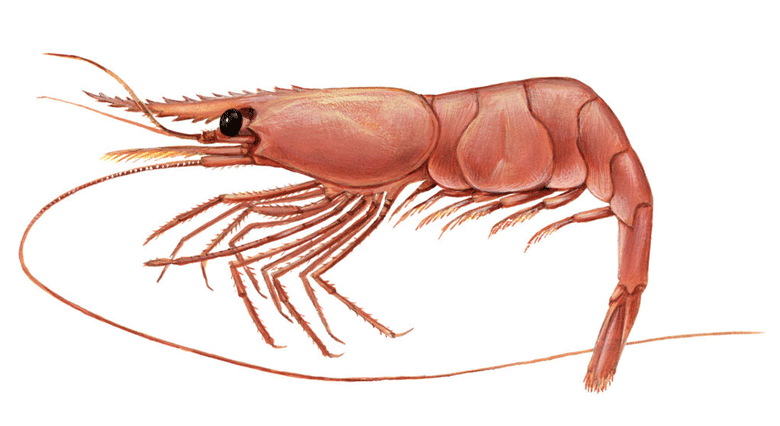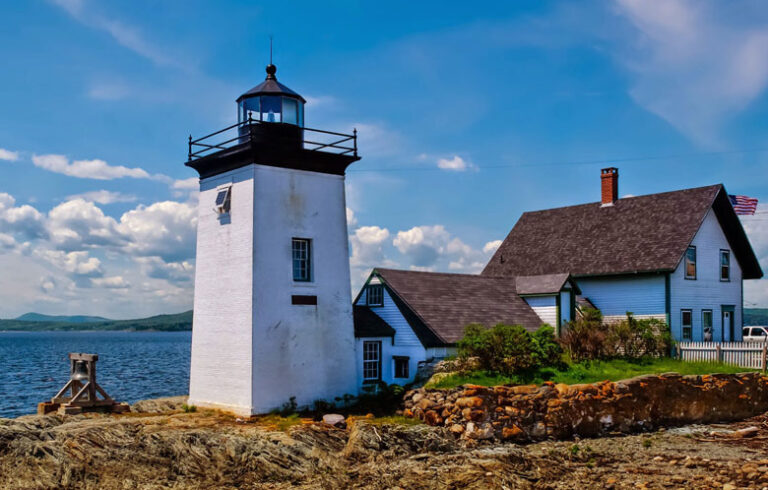Many years ago, my family and I began to spend summers on Vinalhaven. Over the years, first we were summer people, then longer term visitors, and now fortunately homeowners; much has changed.
Not the island so much, although it has. But the oceanic world surrounding us.
First to go were blue mussels, a true delicacy grilled over apple branches. They were eaten by invasive green crabs and disappeared almost overnight. Around the same time starfish or sea stars, once a treat to see clinging to rocks as we kayaked by; they vanished too.
The ocean itself changed, our cove became noticeably warmer, no longer a quick jump in followed by a screaming, laughing exit, now you can swim leisurely back and forth.
What a delicacy they were with a sweet, sweet flavor and hints of the deep ocean.
But what might be the one thing that left before we even knew it was Pandalus borealis, the northern shrimp. Or as my children called them when they appeared in the December fish markets, “tiny little pink Maine shrimp.”
What a delicacy they were with a sweet, sweet flavor and hints of the deep ocean. They said Maine! when we were back in suburban life, a joyful harbinger of the summer to come, reminding us of the beauty of the rugged coast, tall pines, and ocean waves.
In December, the shrimp fisheries annual moratorium was extended, not for a year, or even two or three but indefinitely. A fishery that in its heyday landed 28 million pounds and provided much needed winter income for Maine’s fishers.
What happened? First you must know the amazing biology of these little creatures. One to two inches long, quite pink.
They are true northerners, preferring deep cold water and a relatively narrow temperature range between 32 to 37 degrees Farenheit to spawn.
They are also hermaphrodites, starting life as males, and then transforming into females to lay eggs. The transition needs that perfect temp range. Maine was at the southern edge of their range, but the water was just cold enough to support millions of these shrimps.
By 1980s the Gulf of Maine began to warm, and soon the fishery began to suffer. Once it was clear the fishery was in trouble regulations were put in place hoping to forestall the decline. First seasons were restricted, then in 2013 the stock declined so much that in 2014, the fishing was suspended.
First one year of suspension went by, then two and three, and now the fishing moratorium has been extended indefinitely.
It wasn’t a matter so much of “fishing pressure” decimating the shrimp, it was biology, pure and simple. As the water warmed, the population declined.
Compounding the problem was an increase in longfin squid which liked the warming waters. They moved in from the south and were major shrimp predators. The same thing happened on the West Coast, too; after the Gulf of Alaska began to warm, the western species, Pandalus eous, began to decline.
Of course, there are other signs of climate change around us, rising seas, drenching downpours, strengthening hurricanes, but I think the tiny Maine shrimp are my personal canary in the coal mine. The shrimp are responding to a shift in temperature that is occurring across so many miles of ocean, ocean that I love, that I cannot ignore their wake-up call.
They are my personal call to action, a call to redouble my efforts as an individual and to work collectively to meet UN climate goals. I doubt the fishery can ever return, but hopefully working together we can prevent further warming in the Gulf of Maine. There are great groups out there, like Island Institute, working on behalf of the Gulf. Join one!
Steve Zoloth teaches public health at Northeastern University in Boston. Curiosity brought him and his wife Cathy to stay at the Tidewater Motel in Vinalhaven in the mid-1970s. They fell in love with the island and along with their two children have never spent a summer anywhere else but Vinalhaven.





